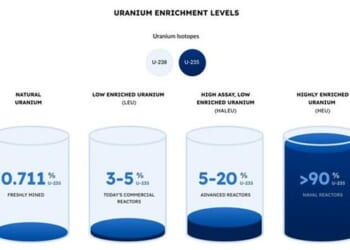The US Department of Commerce has launched what could become one of the most significant initiatives in the Administration’s AI Action Plan: the American AI Exports Program. This new effort positions the Department of Commerce as an active partner in expanding the global reach of American AI technologies: hardware, software, and models. This initiative marks a shift from regulating AI development domestically to fostering trusted AI ecosystems worldwide. At its core, this effort uses US economic and diplomatic strengths to shape the global AI marketplace before others do.
Over the past few years, Washington’s AI policy debate has focused on risk management: how to prevent bias, combat misinformation, and ensure safety in critical systems. These concerns are crucial, but they shouldn’t be the sole focus when discussing emerging technology. The AI Exports Program demonstrates a deliberate expansion of the federal government’s tools, with the Department of Commerce acting as both a regulator and promoter of growth.

By packaging the full American AI stack—from semiconductors and compute infrastructure to models and vertical applications—the United States is making it easier for allies and trusted partners to adopt secure, high-performance AI solutions built on American values of transparency, accountability, and innovation.
The initiative’s structure unites various branches of government and industry. Through an official request for information, the Department invites companies to help craft export packages that can effectively compete on the global stage. These proposals will go through an interagency review process—including the Departments of State, Defense, Energy, and the Office of Science and Technology Policy. The program then leverages the US Commercial Service network and foreign service officers abroad to connect American AI providers with trusted international buyers.
As part of the Department of Commerce’s implementation of the Administration’s AI Action Plan, the focus is on building a balanced foundation for responsible innovation and global competitiveness. The plan emphasizes removing red tape and outdated regulations that hinder progress while ensuring that cutting-edge AI technologies protect free speech and reflect core American values. It seeks to encourage open-source and open-weight AI development, enable broad adoption across industries, and empower American workers to succeed in an AI-driven economy.
The initiative also invests in next-generation manufacturing, AI-enabled science, and the development of world-class datasets to expand the frontiers of research. By focusing on breakthroughs in AI interpretability, control, and robustness—and by creating an ecosystem for AI evaluation—the Commerce Department aims to accelerate AI deployment across government and the private sector. The plan also emphasizes the importance of protecting commercial and government AI innovations, encouraging adoption within the Department of Defense, and tackling the legal and societal challenges posed by synthetic media.
This AI-enabled strategy for economic statecraft could become a defining element of 21st-century technology diplomacy. Exporting AI is not just an economic opportunity; it is a geopolitical imperative. Countries are racing to establish the rules, standards, and supply chains of the AI age, and the US cannot afford to let others determine those norms by default.
By empowering US companies to compete internationally within a coordinated federal framework, the American AI Exports Program strengthens our economy and alliances. It demonstrates that American leadership in AI is about more than just invention; it’s about influence.
Instead of trying to impose innovation from Washington, the Commerce Department is promoting incentives across government and industry to cultivate an environment where US technology can expand globally through partnerships rather than protectionism. If implemented effectively, this approach could mirror the success of earlier export initiatives that built trust in American telecom, aviation, and digital infrastructure. The same strategy can be successful for AI if we prioritize quality, security, and open collaboration.
The Commerce Department’s new American AI Exports Program marks a significant step in the Administration’s effort to promote US technology leadership abroad. By combining diplomatic influence with commercial expertise, the initiative helps American AI companies compete globally through trusted, full-stack export packages. It reflects a strategic shift in Washington—from focusing solely on AI regulation to actively advancing US innovation and values in international markets.
As industry groups form and proposals advance through the process, we will observe how this model performs in real-world situations and whether it can effectively balance innovation, security, and diplomacy on a large scale. If the United States wants to stay the leader in innovation globally, it must not only develop top technology but also help other countries keep up.
The post Washington Working to Expand AI Globally: The Effort to Export American AI Infrastructure appeared first on American Enterprise Institute – AEI.













